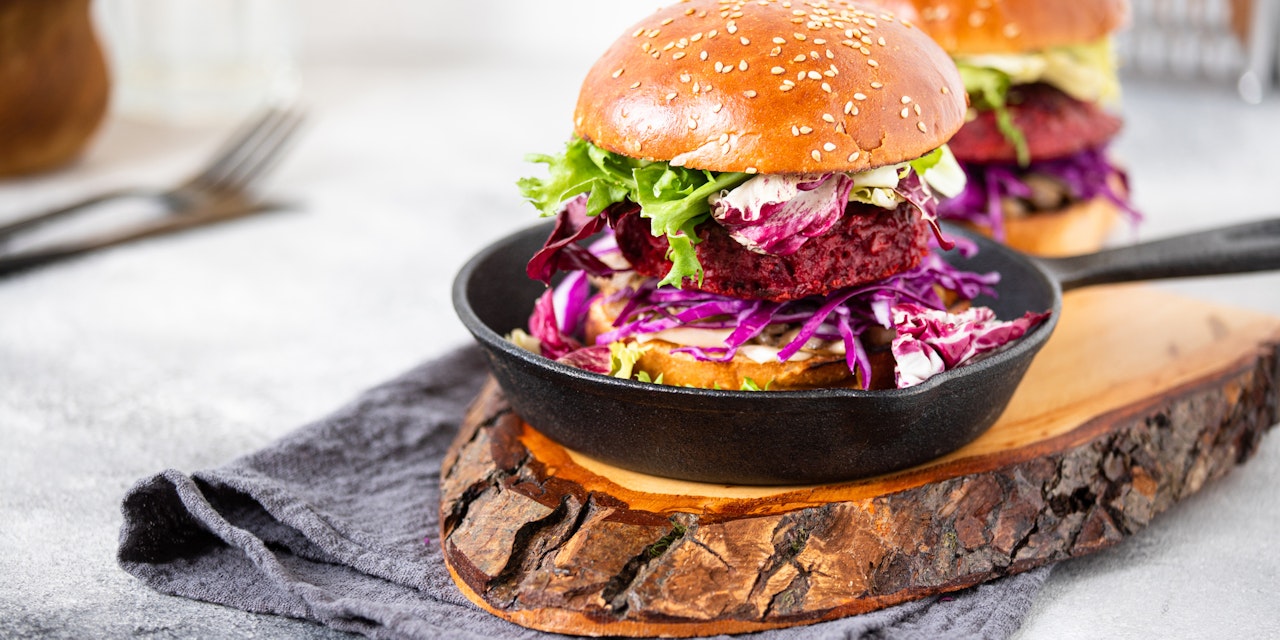Plant-Based Products: Are They More Healthy?
Find out if plant-based products are “meating” the needs of consumers when it comes to healthy and sustainable products.
- Published: 2/12/2021
- Categories:
- 3 min. read

- Published: 2/12/2021
- Categories:
- 3 min. read
Most food manufacturers and fast food restaurants are catering towards the anti-carnivore craze. Current faux meat products have significantly upped the game when it comes to quality and availability, but at what cost? Find out if plant-based products are “meating” the needs of consumers when it comes to healthy and sustainable products.
Most food manufacturers and fast food restaurants are catering towards the anti-carnivore craze. Current faux meat products have significantly upped the game when it comes to quality and availability, but at what cost? Find out if plant-based products are “meating” the needs of consumers when it comes to healthy and sustainable products.
Health
Red meat represents the largest portion of meat eaten in the U.S. at about 58 percent. The U.S. consumes more than three times the global average of meat (3). Too much red meat in one’s diet has been shown to increase the risk of chronic disease.
In a study of over 37,000 Americans, those who ate the most plant protein were 29 percent less likely to pass away due to heart disease. And substituting one serving of red or processed meat for foods such as nuts, legumes (beans, lentil), and whole grains, was associated with a 47 percent lower risk of having heart disease in men (4).
Environment
The current method of factory farming is tough on animal welfare, the environment, and our health. Carbon footprint is the amount of greenhouse gases, such as carbon dioxide, that’s released into the environment as a result of a human activity.
Greenhouse gases can affect climate change depending on how much is in the environment, how long they stay there, and how strongly they impact the atmosphere (5). Conventional livestock leave a carbon footprint of about 15 percent of all greenhouse-gas. Each factory-farmed cow releases about 220 pounds of methane into the atmosphere which absorbs the sun’s heat, warming the atmosphere.
Want to learn more about your carbon footprint? Check out the United States Environmental Protection Agency Household Carbon Footprint Calculator.
Plant-based products
Food companies have picked up on the meat-free movement and meet consumer demands with increased plant-based products. About 28% of American consumers choose meat alternatives (6). But not all plant-based foods are created equal when it comes to health and environment.
Health
Plant-based products also carry some concerns. The Beyond Burger and Impossible Burger, which can be found in many supermarkets and fast food restaurants, contain about 20 ingredients. Typically, the more number of ingredients a food label has, the more processed it is.
Even some of the more “natural” ingredients may be genetically modified, such as soy and commercially produced canola oil. When compared to conventional products, organic foods have less pesticides such as glyphosate which is possibly harmful to humans (7).
Pro tip: when searching for a substitute, look for a shorter ingredient list with ingredients that are plain and simple, such as brown rice, seeds, vegetables, and herbs. Examples include the Sunshine Burger, Garden Herb burger, or Dr. Praeger’s California Veggie Burgers.
Environment
Plant-based meats are helping to reduce some greenhouse gases, but they are not impact free. The shift away from real foods makes for more production of synthetic ingredients, packaging, and mass produced crops.
Plant-based products typically contain soy, corn, and wheat -- all of which are typically genetically modified. Although it's not certain what impact genetically modified foods have on our bodies, current research suggests that they may have damaging effects on the environment (8).
Plant-based the healthy way
Plant-based products can be a great option for vegans, vegetarians and those making the switch to eating less meat. They are great to have every now and again as a burger replacement.
Switching to a more plant-based diet can offer incredible benefits for your body and the environment. The trick is to focus on whole-plant foods such as whole grains, nuts, seeds, colorful fruits and vegetables, and legumes such as beans. Want to start making the switch today? Check out these 7 Vegan Recipes for Meat and Dairy Lovers with a smoky portobello black bean burger -- yes please.
8 references (hide)
All of the content and media on Lifesum is created and published for information purposes only. It is not intended to be used as a substitute for medical advice or treatment. Users should always consult with a doctor or other health care professional for medical advice. If you have or think you are at risk of developing an eating disorder, do not use the Lifesum app and seek immediate medical help.